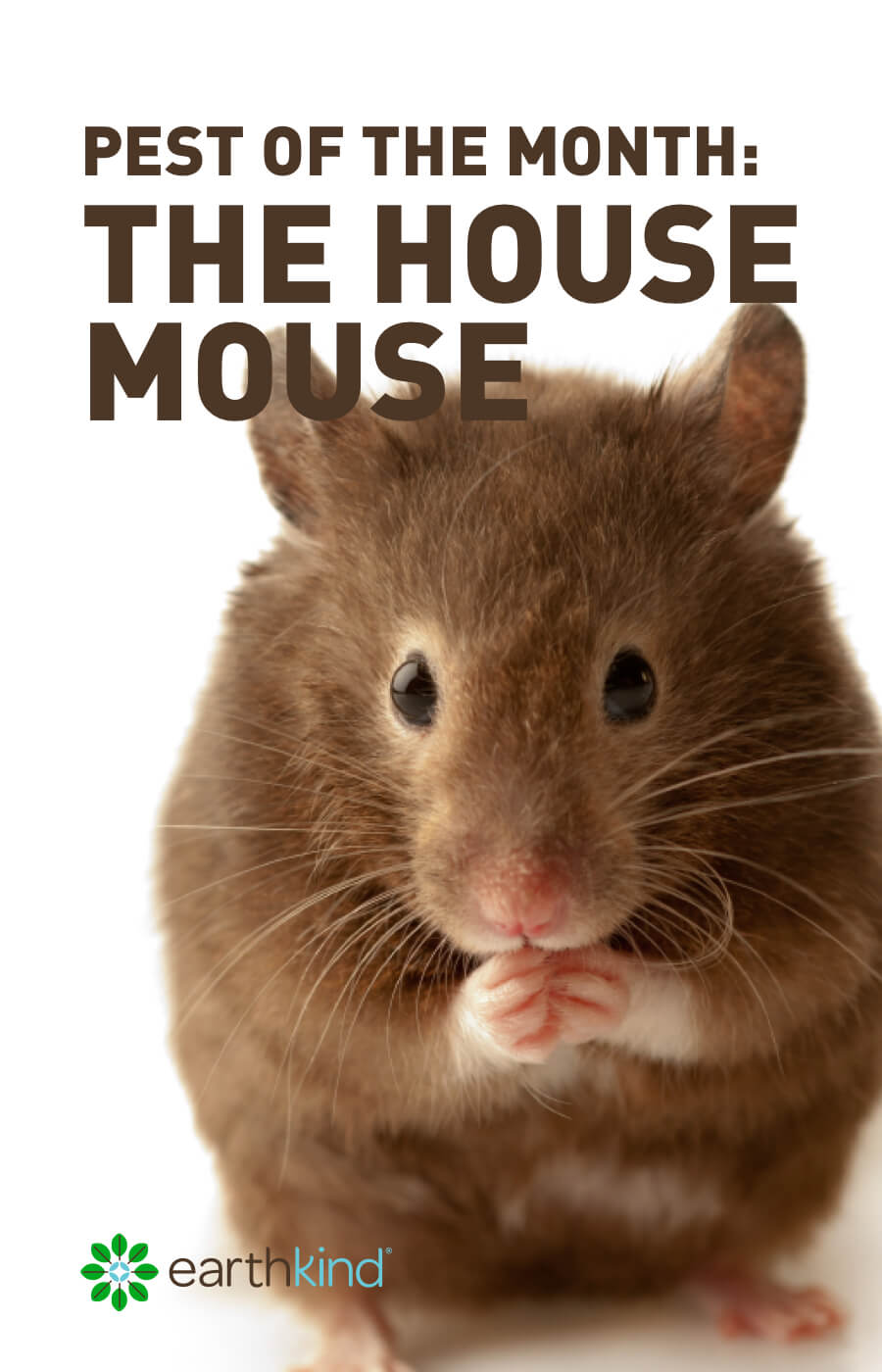All About the House Mouse & Why They Want Inside Your Home
By: EarthKind
The house mouse is one of the main culprits when it comes to homeowners finding rodents in their homes.
These pests typically try to find their way in when the weather takes a cold turn. Once they’ve made their way inside, it’s immediately time to start figuring out how to get rid of them. Understanding what these critters like and don’t like can help you better understand how to keep them away from your home.
Are you rolling out the ‘Welcome’ mat for mice? Learn how to put up a ‘No Vacancy’ sign they can’t ignore!
What Is a House Mouse?
The Mus Musculus, more commonly known as the house mouse, is a small species of mouse that’s found all over the world. This highly adaptive species can survive in the wild, but they thrive when living near people where food, water, and shelter are easy to find. They are one of the most common pests to infest homes and buildings.
Jumping 18 inches in the air, climbing stairs and rough surfaces and swimming are effortless tasks for these critters.
These pests do have poor eyesight. They can’t see colors and they cannot see very far away. However, mice have a very good sense of smell that makes up for their weak eyes. They use pheromones, or scent markers, to communicate with other mice and rely on scents to detect predators or other potential dangers. A mouse’s sense of smell is so powerful, it can identify the age and sex of another mouse up to 10 miles away!
The house mouse’s small size and impressive skills make them a challenging pest, but their ability to reproduce is overwhelming. They can reproduce before they are two months old and typically have anywhere from 3 – 14 babies per litter. A female can have 5 – 10 litters each year so it doesn’t take long for one pest to turn into a large mouse problem.
What Does a House Mouse Look Like?
These creatures may be small, but they are mighty! Their body length from the nose to the base of their tail ranges from 2-3 inches and they weigh less than an ounce. Their tails can be almost as long as their entire body. They have a round shape, black beady eyes, a pointed nose, and small round ears. Their short hair can be anywhere from dark to light brown, grey, or black, but their paws, ears, and long tail are almost hairless. A deer mouse has white feet and large ears, which are a couple of ways to tell the difference.
Keep your home pest free with simple, effective solutions. Subscribe and save!
Likes
All house mice really want are the same things you and I enjoy: a safe, warm home with plenty of food sources and water. They like places that aren’t too tough to get into, but they can squeeze through openings that are only 1/4 of an inch big, so that leaves a lot of options. This means dryer vents, chimneys, cracks in your home’s foundation, or a gap underneath your door are all easy ways for them to enter and start building a nest.
They will eat almost anything including dog food, cat food, leftovers you forgot to put away, and scraps left in the garbage. Water bowls set out for pets, water spills on the floor, dripping faucets, the water next to your tub, and leaky pipes are all options when it comes to staying hydrated.
They also want warmth, which is why they will seek out warmer nesting places during the colder seasons. Dryer vents, the space behind refrigerators or large appliances, and next to the water heater are all places inside your home that a house mouse finds inviting.
They are constantly in search of soft nesting materials to build nests once they’ve found a spot. Your huge pile of papers, dirty laundry, clean laundry fresh from the dryer, dryer lint, towels in the linen closet, insulation, and holiday decorations stored in cardboard boxes are just some of the materials they may use to build.
Dislikes
These pests don’t enjoy open spaces and being around a lot of noise. They prefer to be alone, away from people and danger. They are mostly nocturnal and avoid bright lights, as well.
Mice have a good sense of smell, so good that they are suspicious of anything that smells a little too fresh. Their sense of smell comes in handy when looking for friends or something tasty to eat, but strong botanical fragrances overwhelm their noses. They also aren’t fond of litter boxes because of the smell and the fact that there’s a cat nearby.
They don’t like places that are too clean. They are in search of crumbs and a little clutter, so a place where they can’t easily find this is not a place they want to stay.
How to Get Rid of a House Mouse
If you have a house mouse infestation, you may hear squeaking, scratching or gnawing sounds as they scamper around your home. You might notice shredded paper or even small holes nibbled into packages in your pantry. The most undeniable sign, however, is small black pellets that are similar in shape and size to rice – mouse droppings.
Setting traps baited with peanut butter or cheese might seem like a good pest control option at first, but these mouse control methods usually backfire because they are attracting the pests to easy food. Poisons may also seem like a good idea, but the risks to children, pets, and other animals are very dangerous. Plus, the smell of a dead mouse rotting somewhere in your home where you can’t find or reach it is something no one ever forgets.
Because a house mouse relies on its great sense of smell, you can overwhelm their little noses with a botanical fragrance that will send them running. One of their greatest strengths is also one of their biggest weaknesses! Stay Away® Rodent Repellent is made using a mix of essential oils and other botanical ingredients. The pouches create a smell that’s offensive to rodents, but not to humans. This method also helps to preserve nature’s ecosystem by providing an alternative to poisons, glue traps, and pesticides. Set a few pouches out in places you want to get rid of them and prevent them from returning.
Mice deserve a home too, just not in your house!








